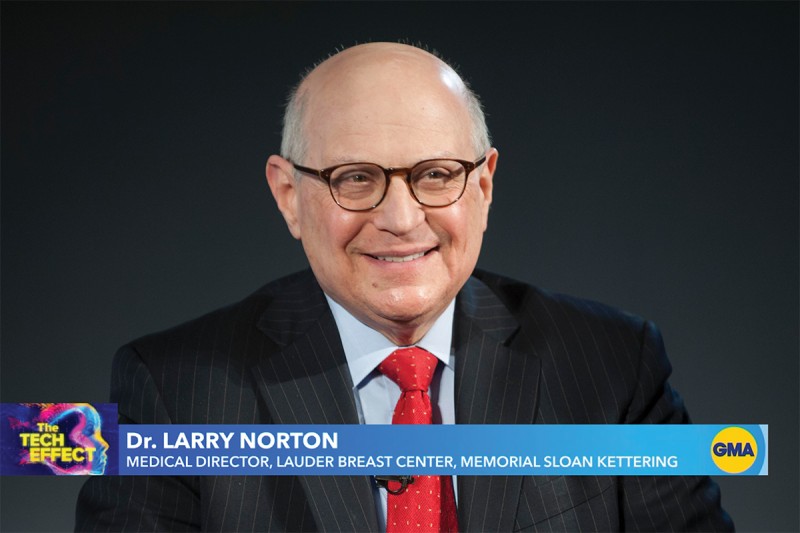
Breast cancer expert Larry Norton, MD, is a frequent guest on news programs like ‘Good Morning America.’
Artificial intelligence (AI) technology has been in the spotlight in recent months as AI chatbots and image generators have become widespread, leading to renewed conversations about the technology’s role in medicine.
One of AI’s most immediate applications for patient care is to help humans pore over digital pictures — such as diagnostic images and pathology slides. These are promising tools with the potential to significantly augment a human expert’s perception, stamina, and efficiency. But, on the whole, they are still being fine-tuned.
Larry Norton, MD, Medical Director of MSK’s Evelyn H. Lauder Breast Center, is an international expert on breast cancer and has appeared on CNN and Good Morning America to talk about the role of AI in detecting the disease.
The basic technology used to teach computers to recognize patterns in an image based on a library of pictures they’ve been trained on is actually several decades old, Dr. Norton notes.
But there are recent advances that show promise for predicting future risk of breast cancer from a mammogram. They are highlighting ways AI could help overcome some of the current limitations of routine breast cancer screening.
“AI programs can look at mammograms and identify areas that human radiologists may want to look at more carefully,” Dr. Norton says. “But it’s not a stand-alone technology — it’s not going to replace a radiologist.”
If a machine detects an abnormality or area at high risk for developing into cancer, it can’t, for example, order additional tests like a contrast-enhanced digital mammogram or MRI that can provide doctors with additional information, he says.
“The major advantage to AI right now is it speeds up the reading of the mammogram so that a radiologist can see more mammograms accurately over a certain period of time,” Dr. Norton told Good Morning America in March 2023.
Moreover, machines are very good at learning what they are taught, but they’re not good at identifying new things they have no previous experience with, he adds.
And while AI technology is getting better all the time, it is not yet a replacement for standard care, Dr. Norton notes.
“A skillful radiologist is still your best partner,” he says. “And your best protection is getting screened — about half of people who should be getting annual mammograms are not getting them.”